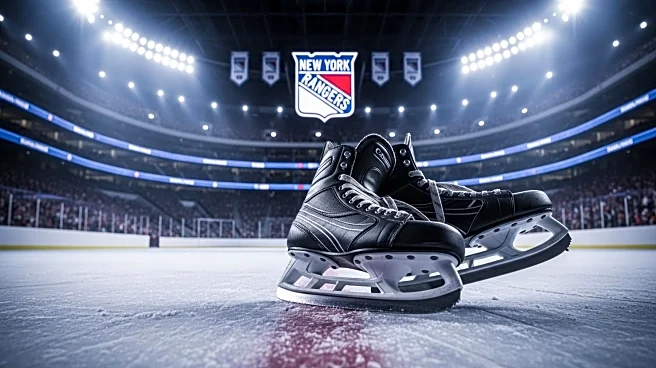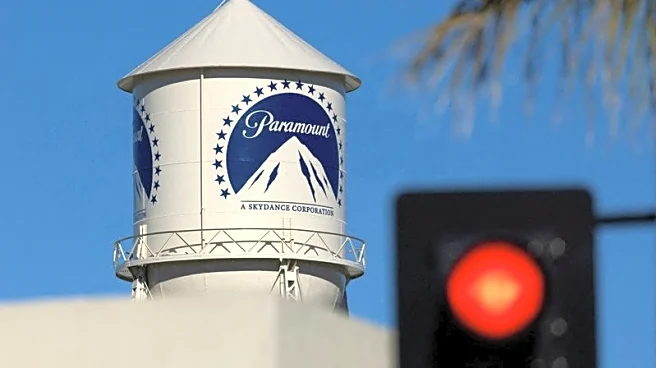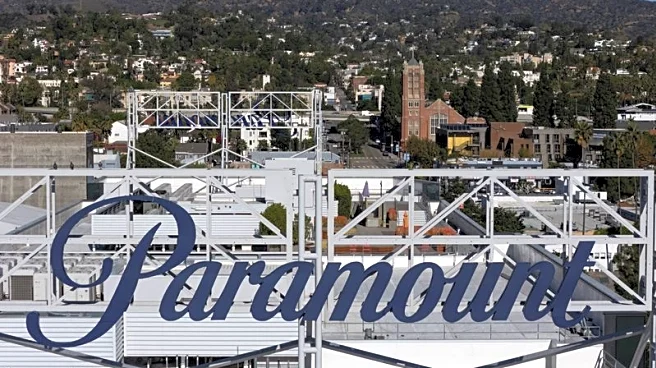What's Happening?
The New York Rangers are commemorating their centennial season by reflecting on their first-ever NHL game, which took place on November 16, 1926. The game was a significant event, marked by a high-society crowd and the presence of movie star Lois Moran, who presented Rangers captain Bill Cook with a handmade stick. The Rangers, coached by Lester Patrick, defeated the Montreal Maroons 1-0, with Bill Cook scoring the only goal. The match was held at Madison Square Garden, where Rangers goalie Hal Winkler delivered an outstanding performance, stopping 48 shots. The event was described as a 'Rolls-Royce occasion,' highlighting its importance in New York's social calendar.
Why It's Important?
The centennial celebration of the New York Rangers' first NHL game underscores the team's historical significance in the sport and its cultural impact in New York City. The Rangers have become an integral part of the city's identity, contributing to the local economy through sports tourism and community engagement. The remembrance of this historic game highlights the evolution of hockey as a major sport in the U.S., influencing the growth of the NHL and the popularity of ice hockey nationwide. It also serves as a reminder of the team's legacy and its role in shaping the sports landscape in America.
What's Next?
As the Rangers continue their centennial season, they are likely to host various events and activities to celebrate their history and engage with fans. This may include special games, community outreach programs, and collaborations with local businesses to enhance the celebratory atmosphere. The team will also focus on maintaining its competitive edge in the NHL, aiming to honor its legacy with strong performances throughout the season. Fans and stakeholders can expect a series of commemorative events that will highlight the team's achievements and contributions to the sport.
Beyond the Headlines
The celebration of the Rangers' centennial season offers an opportunity to explore the broader cultural and social impact of sports teams in urban settings. It highlights how sports can foster community identity, pride, and cohesion, while also driving economic benefits through tourism and local business partnerships. The event also reflects on the historical evolution of sports entertainment and its role in American culture, providing insights into how sports teams can influence societal trends and values over time.










